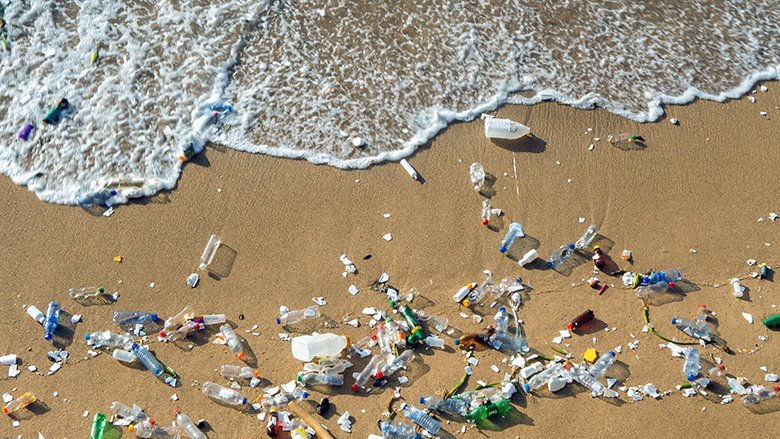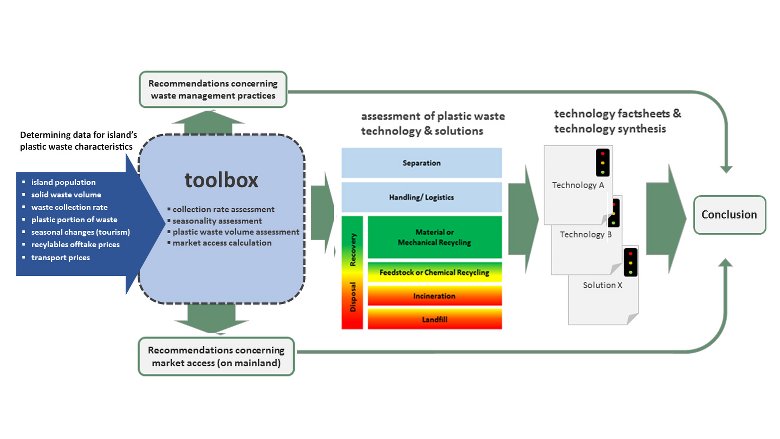Small and remote islands are especially vulnerable to plastic pollution. While there is no single solution to turn the tide on plastic pollution for these islands, a combination of technologies and other solutions to manage plastic waste can help. This study developed the Technology Options for Plastic waste in Island Contexts (TOPIC) Toolbox to support island decision-makers in identifying technologies and a potential mix of technologies and other solutions to treat plastic waste for their island.
All communities and ecosystems are susceptible to the harmful impacts of plastic pollution, but small and remote islands are especially vulnerable given their high coastline-to-area ratios and their reliance on the fishery and tourism sectors. Compounding the issue, solid and plastic waste management is complicated in the context of small and remote islands due to the limited scale of plastic waste, inadequate collection and treatment facilities, and high transport costs.
A combination of technologies and other upstream and downstream solutions can help these communities effectively manage plastic waste, safeguarding their valuable ecosystems and livelihoods. New innovative technologies to treat plastic waste only work effectively in very specific island contexts - viability of these technologies can be impacted by many different aspects including the volume and type of plastic waste, existing solid waste management systems (organization, legal, finance), infrastructure, and community awareness. Any treatment technologies should be considered alongside other solutions such as reducing the plastic input to islands upstream, before it becomes plastic waste, as well as sorting and then transporting plastic waste to a viable recycling market.
This study combines a global assessment of plastic waste management on islands with a review of existing technologies and their viability in island contexts to develop the TOPIC Toolbox —a mechanism for island policy- and decision-makers to identify appropriate technologies and solutions to address plastic waste. TOPIC Toolbox recommendations are tailored to the unique context of each island by evaluating characteristics such as population, solid waste volume, waste collection rates, portion of plastic in waste, seasonal changes (e.g., tourism), the offtake prices of recyclables and waste transport costs. These inputs are then translated into three different recommendation clusters for plastic waste management:
- Outlining suggestions to advance general waste management practices
- Providing information on the potential market access available on the mainland
- Listing potentially viable technologies and solutions, as well as further detail on each of these in a synthesis sheet and individual factsheets.

